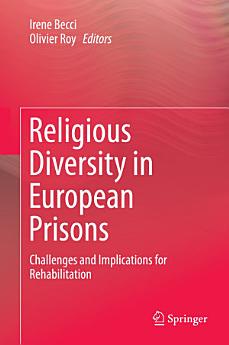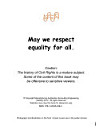Religious Diversity in European Prisons: Challenges and Implications for Rehabilitation
អំពីសៀវភៅអេឡិចត្រូនិកនេះ
The contributions to this work present case studies that examine how prisons throughout Europe have approached challenges of religious diversity. Featuring contributions from the UK, France, Italy, Germany, Switzerland, The Netherlands, Belgium and Spain, this interdisciplinary volume includes contributions from social and political scientists, religion scholars and philosophers examining the role of religion and religious diversity in prison rehabilitation. It will be of interest to researchers in Criminology and Criminal Justice, Social and Political Science, Human Rights, Public Policy, and Religious Studies.
អំពីអ្នកនិពន្ធ
Irene Becci is professor for "Emerging socio-religious processes and new spiritualities" at the Institute of Social Sciences of Religion at the University of Lausanne. She holds a PhD in political and social sciences from the European University Institute. Irene Becci has worked on the topic of religion in prisons during her doctoral and on religion for ex-prisoners in her postdoctoral studies, comparing Italy, Germany and Switzerland. She is currently enlarging her perspective to other state institutions dealing with religious diversity and spirituality. She has published widely on the subject, in particular: "Imprisoned Religion: Transformations of Religion During and After Imprisonment in Eastern Germany" (2012, Farnham: Ashgate).
Olivier Roy is Professor at the European University Institute where he heads the Mediterranean Programme at the Robert Schuman Centre for Advanced Studies and is director of the program ReligioWest. He has been a Senior Researcher at the French National Center for Scientific Research (since 1985), Professor at the Ecole des Hautes Etudes en Sciences Sociales (since 2003), and visiting Professor at Berkeley University (2008/2009). He headed the OSCE’s Mission for Tajikistan (1993-1994) and was a Consultant for the UN office of the Coordination for Afghanistan (1988). His field work include Afghanistan, Political Islam, Middle East, Islam in the West and comparative religions. He received an “Aggregation de Philosophie” and a Ph.D. in Political Science. He is the author of “The failure of Political Islam” (Harvard UP 1994), “Globalized Islam” (Columbia University Press, 2004) and more recently of “La Sainte Ignorance” (“Holy Ignorance”, Columbia University Press, 2010). He is presently working on “Islamic norms in the public sphere”, conversions, apostasy and comparative religions.





